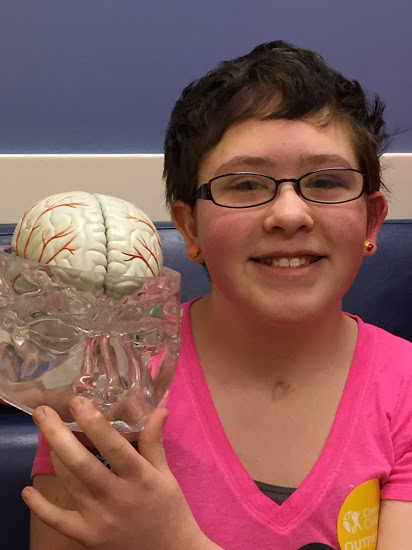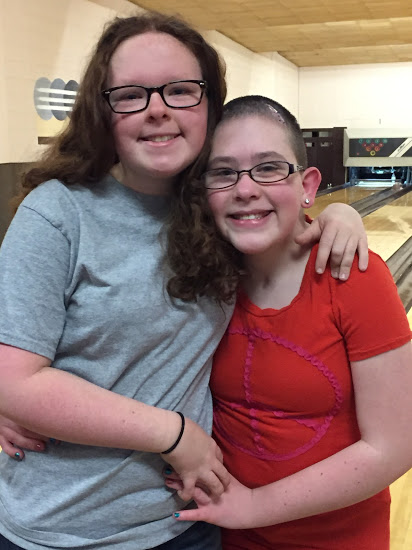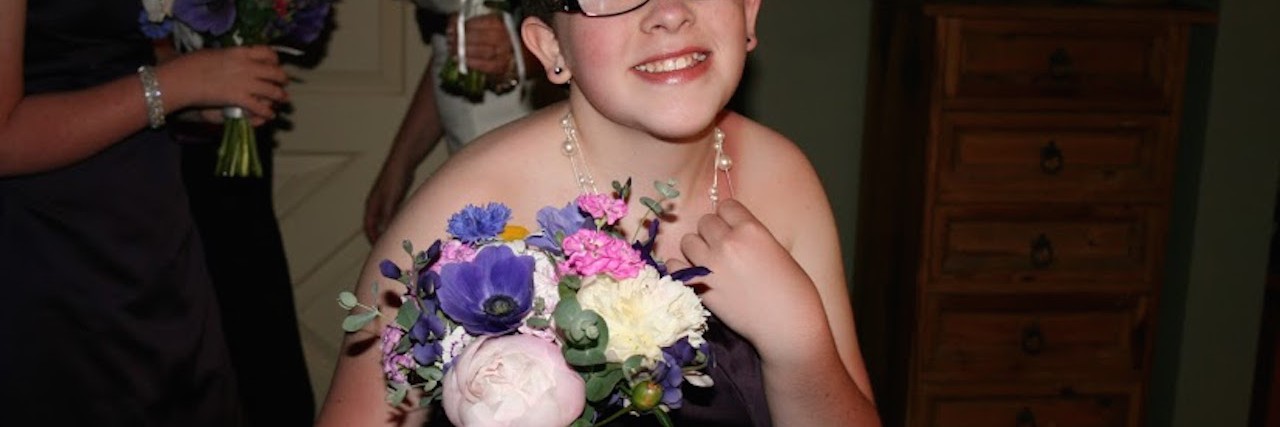What I Wish I Would Have Known After My Daughter’s Spina Bifida Diagnosis
It’s going to be better, and worse than you expect. But mostly, it’s going to be better.

I thought my purpose that day was to determine if my child was a boy or a girl. Boy, was I wrong! My daughter Amelia was my third child, and when I headed into my ultrasound at 19 weeks pregnant, my goal was to find out if my child would be Amelia or Gabriel. What I didn’t know, is she would introduce us to a whole new world.
After getting only the most brief information possible from our ultrasound tech, my husband and I nervously walked into the OB’s office several long hours after the news that our baby had spina bifida (SB). This was in 1999, so the information available on the internet was even less reliable than it is today, and I didn’t know enough to know which sources to trust.
My OB greeted us by saying, “I’m so sorry. This is the worst news anyone could ever get.”
Even then, not knowing much more than the fact our child would have issues with her spine and brain, I knew his words were untrue. I could think of so many worse pieces of news, and I was shocked that he lead with that statement.
My daughter is fifteen now, and I feel like I’ve made it through the intense childhood years, when I was learning something new about her diagnosis, her abilities and her care constantly. She’s old enough that I can back up and see our past fifteen years together as including more challenges than I had expected on that January day in 1999, but also more amazing moments than anyone ever told me I could hope for. By far, the amazing ones win.
Amelia has had over seventy surgeries, including more than thirty shunt replacements. She had a tracheostomy and a feeding tube, and we joke that we’ve seen almost every specialty clinic at our children’s hospital. There have been times when I was overwhelmed by the challenges she’s had to overcome, and the stress I’ve felt while trying to keep the whole family (she has two older sisters and two step-brothers) functioning. I don’t want to imply that these times don’t happen, or even that they’re rare, but this is the side of disability I believe too many people focus on. What I wish I had read about when I got her diagnosis was all of the absolutely amazing times we would have because of her diagnosis.

The diagnosis of spina bifida made me search for a larger community to belong to, and this has been instrumental in my family’s ability to understand the diagnosis, share and receive support and make life-long friends. When I was pregnant I happened to find an internet support group of other women whose children had spina bifida, and we have remained close to this day. They are the first place I go when I need a group that “gets it,” and is there to cheer our accomplishments or help us through the challenges. My local SB group allows my daughter to become friends with others like her who are successful teens and adults, be a mentor to younger kids figuring it all out and find inclusive, exciting opportunities nearby. Beyond our diagnosis-specific network, I’ve been forever inspired and excited by the wider subset of those with disabilities and those who love them.
Facing so many surgeries, especially, has taught my daughter and me to enjoy each success, regardless of the size, as they come. I remember worrying if she would have friends. Now she knows more people than I do when we go out to the grocery store. A visit to the hospital means adding in an extra thirty minutes because Amelia will be stopping to talk to fifteen people in the halls. She stops to tell kids waiting nervously for X-rays or procedures that they’ve got nothing to worry about.
We also know the importance of humor and find it wherever we are. Recently, we celebrated two years without a shunt surgery by making a Jello-mold brain and inviting our friends over. She gave her g-tube, her hernias and her external ventricular drain (EVD) names. She has light-up casters on the front of her wheelchair so little kids will think it’s cool instead of being scared of it.
Yes, life with a family member with a disability will have challenges. But above the challenges, will be the joy. You will learn more about yourself and others than you could imagine. You will meet inspiring people throughout the disability community, and see through them, and your own child, that we are not judged by what we are given, but by what we do with it.
The Mighty is asking the following: Write the article you wish you’d found the first time you Googled your or a loved one’s diagnosis. Check out our Submit a Story page for more about our submission guidelines.

